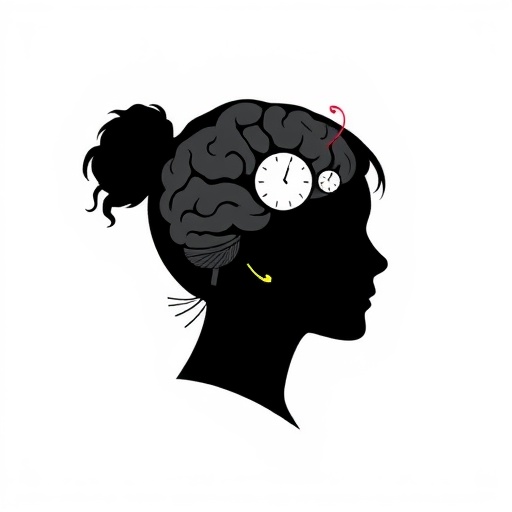In the discourse surrounding economic inequality, one of the most deeply ingrained assumptions is that rising disparities in income and wealth inevitably erode individual well-being and mental health. This long-standing narrative has shaped public policy debates and societal attitudes for decades. However, a groundbreaking new meta-analysis published in Nature in 2025 challenges this accepted wisdom with compelling evidence drawn from an unprecedented scale of data and rigorous methodological scrutiny.
The study, spearheaded by Sommet, Fillon, Rudmann, and colleagues, synthesized findings from 168 independent studies encompassing a staggering total of over 11 million participants across more than 38,000 geographical units worldwide. These multilevel data cover a vast temporal and spatial scope from 2000 to 2022, thereby providing one of the most comprehensive examinations of the psychological impacts of economic inequality to date. This extensive aggregation allows for nuanced insights that transcend the limitations of individual studies, which often suffer from reproducibility issues and contextual biases.
Contrary to the generalized belief that individuals residing in more unequal societies report diminished subjective well-being, the meta-analytical results reveal a strikingly null association. Utilizing sophisticated random-effects models, the researchers found that the standardized odds ratio linking economic inequality to well-being hovered near unity (OR=0.979, 95% CI=0.951–1.008), suggesting no meaningful negative effect. This null result remained robust even after correcting for potential publication bias, which is known to skew literature towards significant findings.
The implications are equally profound when examining mental health outcomes. Initially, links between inequality and poorer mental health appeared present; however, when applying rigorous bias correction methods, the true effect dissipated, yielding an odds ratio effectively at null (OR=1.019; 95% CI=0.990–1.049). These findings challenge a central tenet of social epidemiology and psychology, which posits that contextual socio-economic disparities exert pervasive detrimental effects on mental wellness across populations.
To ensure the robustness of these conclusions, the research team employed specification curve analyses—a cutting-edge technique that tests the stability of effects across a multitude of analytical models. Remarkably, approximately 95% of the 768 alternative statistical specifications reaffirmed the null association, suggesting that earlier reports of harm from economic inequality may have been artifacts of selective analytic choices or methodological heterogeneity.
Quality assessment revealed critical insights into the literature’s state of evidence. Using ROBINS-E, a comprehensive risk-of-bias tool for observational studies, 80% of examined research was found to suffer from high bias risk, undermining confidence in prior findings. Complementary evaluations through the GRADE framework further endorsed the credibility of null effects over purported negative ones, signaling a pressing need for methodological rigor in this contentious field.
Despite the overall null effects, the study uncovered important moderators that contextualize the nuanced role of economic inequality in shaping psychological health. Meta-regression analyses indicated that adverse associations with mental health are predominantly localized to low-income populations, suggesting that socio-economic vulnerability might amplify sensitivity to inequality’s psychosocial stressors. This finding aligns with theories emphasizing the conditional nature of inequality’s impact, depending on individual and community resources.
Moreover, leveraging machine-learning approaches on the vast dataset unearthed complex interactions between economic conditions and inequality effects. For instance, in contexts characterized by high inflation rates, inequality demonstrated a negative correlation with well-being, whereas in stable or low-inflation environments, the association was surprisingly positive. Such insights reveal the dynamic interplay between macroeconomic forces and social disparities, opening avenues for targeted policy interventions that consider economic context holistically.
To validate these observations, the researchers conducted external replication using Gallup World Poll data encompassing approximately two million respondents, bolstering the generalizability of their findings. Cross-validation using real-world, high-quality survey data underscores the robustness of the detected moderation effects and challenges the universality of the inequality-mental health hypothesis.
This investigation significantly recalibrates the conventional understanding of economic inequality’s psychological sequelae. The notion of a universal, detrimental impact is replaced with a more nuanced narrative recognizing that effects depend critically on broader economic environments and socio-demographic vulnerabilities. Such a perspective demands rethinking public health strategies and social policies that aim to mitigate mental health burdens attributed solely to inequality.
By refuting claims of broad harm and highlighting contextual moderators, the meta-analysis calls for more targeted approaches that address the root causes of mental health disparities beyond simplistic inequality metrics. This entails integrating economic stability, social support mechanisms, and community-level interventions tailored to at-risk populations rather than pursuing blunt redistributionist agendas as panaceas.
In sum, the work by Sommet et al. adds a seminal contribution to the discourse on inequality’s psychological impacts, leveraging large-scale meta-analytic rigor and innovative analytical techniques to unravel the complex reality beneath prevailing dogmas. It exemplifies the importance of methodological transparency, comprehensive data integration, and context awareness in advancing social science and public health knowledge.
As societies grapple with escalating economic disparities and mental health crises, findings such as these underscore the critical need for evidence-based policy informed by robust, nuanced inquiry. While inequality remains a significant socio-political challenge, its psychological costs may not be as universally deleterious as previously assumed, inviting deeper exploration into the conditions under which inequality truly matters for human well-being.
Subject of Research:
The psychological effects of economic inequality on subjective well-being and mental health across diverse populations and contexts.
Article Title:
No meta-analytical effect of economic inequality on well-being or mental health.
Article References:
Sommet, N., Fillon, A.A., Rudmann, O. et al. No meta-analytical effect of economic inequality on well-being or mental health. Nature (2025). https://doi.org/10.1038/s41586-025-09797-z
Image Credits:
AI Generated
DOI:
https://doi.org/10.1038/s41586-025-09797-z
Tags: comprehensive study on economic inequalitydata synthesis in mental health studieseconomic inequality and mental healthexamining inequality’s impact on societyfindings from global research on inequalityindividual well-being in unequal societiesmeta-analysis of psychological impactspsychological effects of wealth disparitypublic policy and mental health discourserigorous methodology in social researchsubjective well-being and economic conditionswell-being and income disparity





